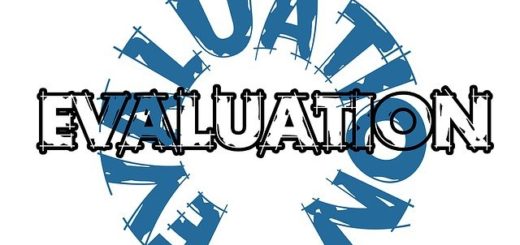Consultancy Services for Cash and Voucher Assistance (CVA) Training Facilitator
1. About ChildFund
ChildFund is a non-sectarian and non-profit development organization working in more than 30 countries worldwide to improve the well-being of about 15.2 million children and families, regardless of race, creed, religion, and gender. In Kenya, ChildFund works through 13 local partners (LP’s) in 26 counties. The thematic areas that the organization focus on include Child Protection, Household Economic Strengthening, Early Childhood Development, Education, WASH (Water, Sanitation and Hygiene), Disaster Risk Reduction (DRR), Emergency Response, Health and Nutrition. The three-fold mission is to help deprived, excluded and vulnerable children improve their lives and become adults who bring positive changes to their communities: to promote societies that value, protect, and advance the worth and rights of children and to enrich supporters’ lives through their support of the organization’s cause.
2. ChildFund Kenya Cash and Voucher Assistance Programming
ChildFund Kenya has programs cross various sectors including Emergency, DRR, Food Security and Livelihoods, Child Protection, Education, WASH, Health, shelter among others. Cash transfers are a mechanism for providing resources for all sectors and ChildFund has used this mechanism to meet the needs of Deprived Excluded and Vulnerable (DEV) Children and families across all the sectors.
While governments must take primary responsibility for their citizens in disaster situations, the non-state actors like ChildFund Kenya are often called upon in humanitarian crises to aid those in need. Cash transfers (sometimes in the form of vouchers) assist populations affected by disaster particularly where employment, income, livelihood, or economic production opportunities have been lost or adversely affected. In a situation of emergencies and recovery, cash transfers are most appropriate as they assist in ensuring access to basic livelihoods services to the Deprived Excluded and Vulnerable (DEV) families and their Children. It is often quicker to provide cash than to implement a commodity-based response.
The provision of cash alone is, however, not always enough. Cash transfer programs often need to be linked with others that focus on improving infrastructure, market support and the availability of services and products. Cash programs can also include the distribution of in-kind commodities such as handwashing stations, sanitizers, and other non-food items. Although cash can be used in a range of sectors, ChildFund Kenya has most commonly been using this mechanism in food security and livelihood responses. There are several opportunities for ChildFund and other actors with regards to CTP across the sectors, and these have also been integrated into the 2011 Sphere handbook. ChildFund supports this by working with various Clusters and ensure that CTP is considered as a response option.
ChildFund Kenya has a long and successful experience of disbursement of Designated Funds Certificate (DFC) from sponsors to sponsored households through mobile money transfer and has used this experience to build the cash transfer program aimed at addressing the needs of the DEV families affected by various disasters including floods, drought, conflict, the COVID-19 and Desert Locust Invasion (DLI) emergencies.
3. Purpose and Objectives of Training
3.1. Purpose
ChildFund Kenya seeks to build the capacity of Country Office (CO) staff and Local Partners (LPs) Staff on Cash and Voucher Assistance (CVA) to enable them to be able to design, deliver and monitor Cash Transfer and voucher Programming while positively impacting the livelihood of the DEV children and their families. In addition, the training will emphasize on the role of CTP is building the resilience of vulnerable communities in addition to meeting their immediate needs.
3.2. Objectives of the Training
Overall Objective
The overall objective of the Training is to build the capacity of CO staff and the LPs focal staff on Cash and Voucher Assistance (CVA).
The training will thus equip the staff with the skills and knowledge to successful implement Cash and Voucher Assistance Programming, including development of concepts and proposals for funding, clear selection and targeting criteria, mode of delivery, monitoring and evaluation among others. The anticipated immediate outcome of the training will be for roll out of the training by the LPs and streamlining the Cash and Voucher Assistance (CVA) program to adhere to the Standard Operating Procedures (SOPs) as designed by the Cash Learning and Partnership (CaLP).
Specific Objectives
- Facilitate in-person training workshop for 32 participants (6 ChildFund CO and 26 LPs staff) on Cash and Voucher Assistance (CVA)
- Develop training materials by adapting one of the CaLP’s existing training programs, such as the five-day course on “Core CVA Skills for Programme Staff”
- Ensure linkage between CVA and child protection in the training as a key thematic area for ChildFund
- Provide the LP staff ToTs with the customized training materials for the roll the training to their staff at the local level.
4. Scope of work
A. Capacity building training on Cash and Voucher Assistance (CVA) for the ChildFund Kenya CO staff and LPs staffs: Adopt and implement training modules on CalP. The modules should cover various topics including but not limited to:
- Basic Principles of Cash and Voucher and Cash as an option
- Cash transfer and voucher Processes, Delivery Modalities and Preconditions
- Vendor Selection Criteria
- National Cash Transfer Infrastructure, Payment Method, and delivery Agents
- Cash in Sectoral areas and Sectoral experience
- Assessments and Risk Analysis, Key tools, 3W and other data collection
- Beneficiary Selection, Registration, verification criteria and Communication
- Beneficiaries and Vendors training
- Accountability and Transparency
- Cash transfer amount and duration – Harmonizing rates and grant sizes
- Technical Working groups
- Monitoring, Evaluation, Accountability and Learning
i. Other areas
The training will also cover the aspects of.
- Case studies and experience on Cash and Voucher Assistance
- Beneficiary participation and Complaint and feedback mechanism
- Linking Cash and Voucher Assistance to Child Protection and Resilience building of the DEV families
- Organization Cash and Voucher Guidelines and alignment to Standard Operating Procedures (SoPs)
B. Guide Participants in the development of CVA training roll out plan: Define the CVA training cascade plan and appropriate tools and materials to ensure effective implementation of the plan. The plan should be integrated in the LPs normal program.
5. Participants of the training
The training participants will include 26 staff from local partners and 6 CO staff from ChildFund Kenya Country Office staff, who are directly involved in the program implementation (the staff allocation between the LPs and the CO may revised based on the need).
6. Methodology
- Problem-based learning: discuss practical scenarios i.e. some successful Cash and Voucher Programs and lessons learnt
- Learning by doing group exercises will be given to participants after each theory session to make sure that they can apply what they have learnt into practice immediately. This will include case studies and past projects implemented.
- Learning from each other: participatory training methods such as brainstorming, group discussion, case analysis, role play…to be applied.
7. Expected contents and outputs
- The participants should be able to appreciate and understand the relevance of Cash and Voucher Program in humanitarian assistance, recovery, and Resilience building for sustainable development.
- The participants should be able to appreciate and understand the relevance of CVA and the SoPs to ensure effective delivery of the program.
- The participants develop action plans for the roll out of CVA training in the various areas of operation.
- Acquire appropriate skills and knowledge to design, implement and Mainstream CVA into their projects.
- Roll out the training on CVA for the other relevant LP staff and stakeholders including other stakeholders in the operation areas.
8. Location
Not yet determined (a workshop out of Nairobi, preferable in one the LPs operation areas)
9. Tentative Schedule
The assignment will take a maximum of 10 days with the actual training taking 5 days (tentatively from 15th to 19th November 2021) Travelling on 14th afternoon and back on 19th afternoon
10. Feedback and Use
The training evaluation and outcome/results will be used by ChildFund CO to enhance the Cash and Voucher Assistance related programmes.
11. Responsibilities of the consultant/trainer
Reporting to the Disaster Risk Reduction Specialist, the CVA Training Facilitator (consultant) will deliver the training of trainers (ToT) to LP and CO staff.
The responsibilities of the trainer/consultant will be to:
- Adopt the training content and the program based on one of the CaLP’s existing training programs such as “Core CVA Skills for Programme staff,”.
- Ensure that the training is line with the Cash and voucher Assistance standard operating procedures (SoPs) for the entire duration of the training period.
- Design an appropriate process of the training leading to the desired results
- Propose on the most appropriate training methodology for effective delivery of the assignment.
- Device the tools required for each session of the training.
- Satisfactorily facilitate the training sessions ensuring active engagement of all the participants.
- Share training materials and provide any resource materials for further reading and reference by ChildFund and LPs.
- Administer a pre and post-test or any other tool to measure knowledge gained by the participants.
- Facilitate the training workshop
- Compile and submit quality training report (one soft copy and two bound hard copies).
12. Consultants’ Qualifications
The consultant must have the following competencies:
- Must have led at least four similar CVA training in the past three years especially Cash Transfer Programming.
- The trainer MUST be Certified CVA trainer and listed in the CaLP website.
- Should have a minimum educational qualification equivalent to a master’s degree in Humanitarian and Development related field or a discipline related to one of the technical areas, from recognized universities.
- Good understanding of local, national, and regional CVA programming and deliver modalities.
- Should have demonstrated understanding, knowledge, skills in research, training etc. in areas of Cash and Voucher Assistance.
- Having vast experience in training for the adult as well as well-employed participatory training methods. Hands-on experience in development of training program, training documents and skills in training, facilitation. Very good communication and presentation skills.
- Familiar with the existing social protection programs by the government and other non-state actors
- Experience in developing organizational strategy, action plans and policy documents.
- Excellent analytical and report writing skills
- Excellent written and spoken English
13. Payment mode
Payment will be done upon submission and acceptance of the training tools, materials, and final training report by ChildFund Kenya.
NB
- The Consultant’s compensation shall be paid NET, within 30 days from receipt of a proper invoice unless otherwise specified.
- Payment will be made by Bank transfer unless otherwise specified.
The payment shall be subjected to 5% withholding tax as required by the Law at the time of payment.
ChildFund Kenya is committed to safeguarding the interests, rights, and well-being of children with whom it is in contact and to conducting its programs and operations in a manner that is safe for children.
How to Apply
Interested candidates who meet the above qualifications should send their expression of interest including the technical and financial proposal. The technical proposal should clearly indicate the qualification and previous similar assignments undertaken. Incomplete documents will be disqualified, all the expression of interest should be sent before close of business on 5thNovember 2021 to KenyaProcurementCommitee@childfund.org








